
Tulagi: The Hidden Gem of the Solomon Islands
Tulagi, once the capital of the British Solomon Islands, is a small island rich in history and natural beauty. Nestled in the Solomon Islands, this quiet retreat offers a glimpse into the past with its World War II relics and colonial architecture. The island's serene atmosphere and friendly locals make it a perfect escape from the hustle and bustle of city life. Explore the island's lush jungles and pristine beaches, where you can snorkel or dive to discover vibrant coral reefs teeming with marine life. Tulagi's clear waters are perfect for underwater photography, and its secluded spots provide an idyllic setting for relaxation. Tulagi also offers a unique culinary experience, with fresh seafood and traditional Melanesian dishes. Visit the local markets to sample tropical fruits and handmade crafts, or take a guided tour to learn about the island's unique culture and traditions. Whether you're a history buff, nature lover, or simply looking for a peaceful getaway, Tulagi has something to offer everyone.
Local tips in Tulagi
- Visit the World War II relics and memorials to get a sense of the island's historical significance.
- Don't miss out on snorkeling or diving to explore the vibrant coral reefs and marine life.
- Try local dishes and fresh seafood at the island's eateries for an authentic Melanesian culinary experience.
- Bring cash, as there are limited ATM facilities on the island.
- Respect local customs and traditions, especially when visiting villages and cultural sites.
Tulagi: The Hidden Gem of the Solomon Islands
Tulagi, once the capital of the British Solomon Islands, is a small island rich in history and natural beauty. Nestled in the Solomon Islands, this quiet retreat offers a glimpse into the past with its World War II relics and colonial architecture. The island's serene atmosphere and friendly locals make it a perfect escape from the hustle and bustle of city life. Explore the island's lush jungles and pristine beaches, where you can snorkel or dive to discover vibrant coral reefs teeming with marine life. Tulagi's clear waters are perfect for underwater photography, and its secluded spots provide an idyllic setting for relaxation. Tulagi also offers a unique culinary experience, with fresh seafood and traditional Melanesian dishes. Visit the local markets to sample tropical fruits and handmade crafts, or take a guided tour to learn about the island's unique culture and traditions. Whether you're a history buff, nature lover, or simply looking for a peaceful getaway, Tulagi has something to offer everyone.
When is the best time to go to Tulagi?
Iconic landmarks you can’t miss
MS World Discoverer
Discover the historical allure of the MS World Discoverer, a captivating shipwreck in Iron Bottom Sound, surrounded by stunning marine life and rich history.
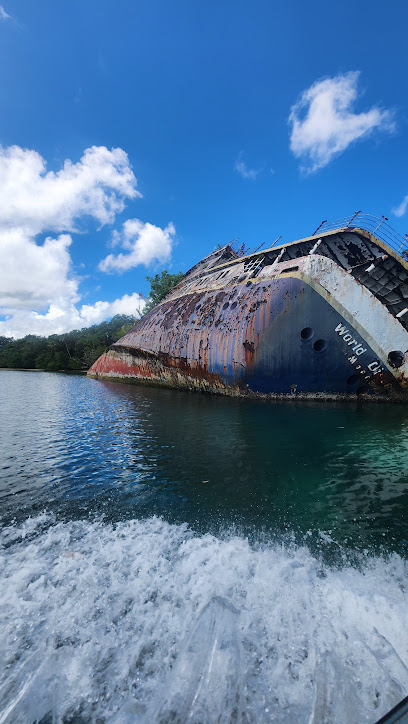
Heritage Park Hotel
Experience unparalleled comfort and local charm at Heritage Park Hotel in Honiara, the gateway to the stunning Solomon Islands.
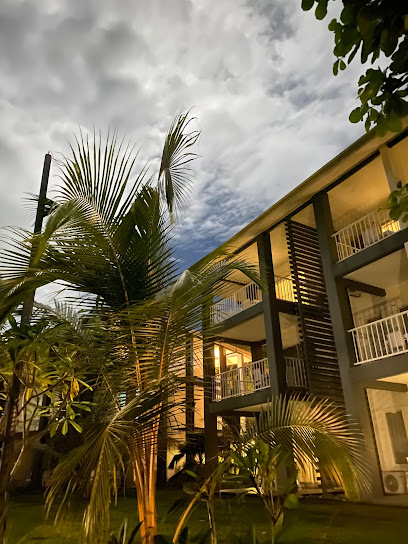
Coral Sea Resort & Casino
Discover the Coral Sea Resort & Casino, where relaxation meets excitement in the heart of Honiara, Solomon Islands.

Honiara Central Market
Discover the vibrant heart of Honiara at the Central Market, where local culture, fresh produce, and unique crafts await every traveler.
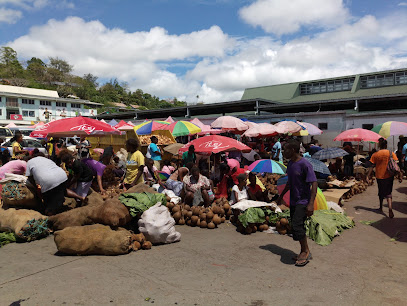
Guadalcanal Memorial
Discover the Guadalcanal Memorial, a serene tribute to World War II heroes amidst the lush landscapes of Honiara, Solomon Islands.
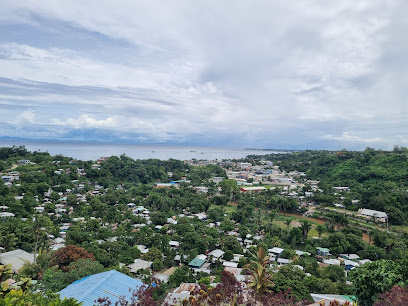
Solomon Scouts & Coastwatchers Monument
Discover the rich history of the Solomon Islands at the Solomon Scouts & Coastwatchers Monument, a tribute to local heroes of World War II.
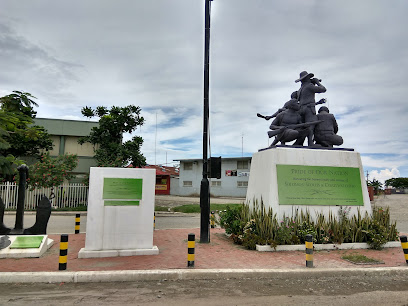
Vilu Military Museum
Explore the Vilu Military Museum in Lenggakiki, a tribute to the Solomon Islands' wartime history with fascinating exhibits and personal stories.
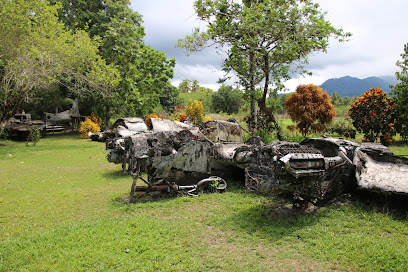
Solomon Islands National Museum
Explore the Solomon Islands National Museum for an enriching journey through the vibrant culture and history of this breathtaking archipelago.
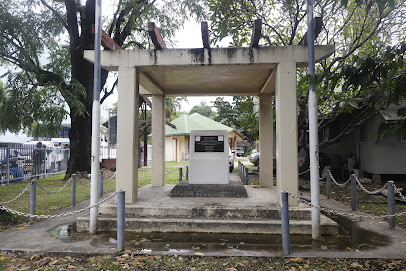
Tulagi Island
Experience the serene beauty, rich history, and vibrant marine life of Tulagi Island, a hidden gem in the Solomon Islands perfect for relaxation and adventure.
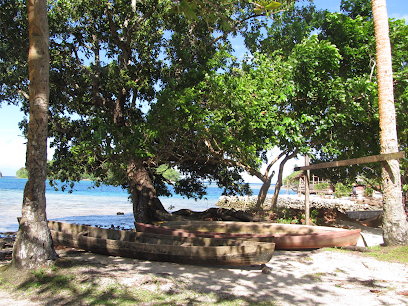
Solomon Islands Ports Authority
Explore the Solomon Islands Ports Authority in Honiara, your gateway to breathtaking adventures and local cultural experiences.
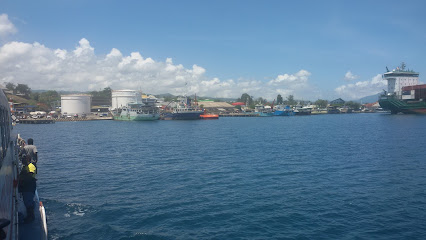
Vanita Motel & Restaurant
Experience the flavors of the Solomon Islands at Vanita Motel & Restaurant, your go-to spot for local cuisine and cultural exploration in Tulagi.
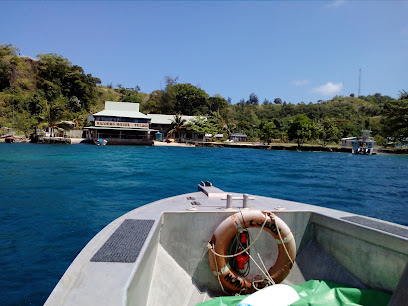
Bilikiki Cruises
Dive into adventure with Bilikiki Cruises and discover the stunning underwater beauty of the Solomon Islands.
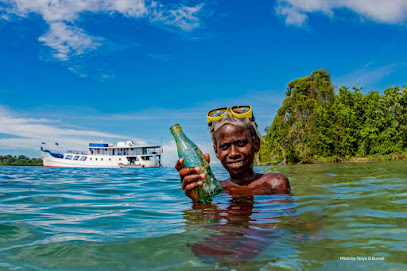
Maravagi beach resort
Discover the idyllic Maravagi Beach Resort on Mangalonga Island, where sun, sea, and serenity await every traveler seeking blissful relaxation.
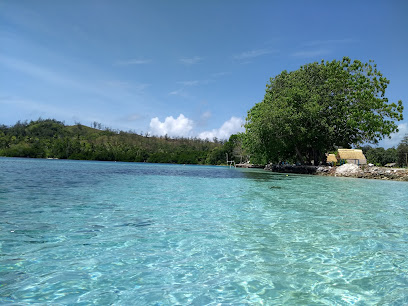
Taste & Traditions
Discover the authentic flavors of the Solomon Islands at Taste & Traditions, a culinary gem in Honiara's vibrant Central Plaza.
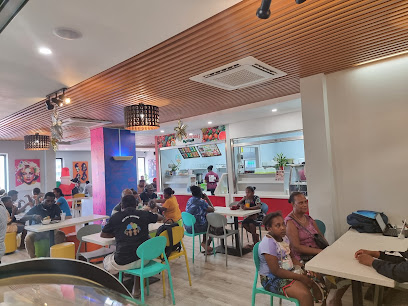
Tulagi Dive
Experience the vibrant underwater world at Tulagi Dive in Honiara, where adventure and marine conservation come together in perfect harmony.
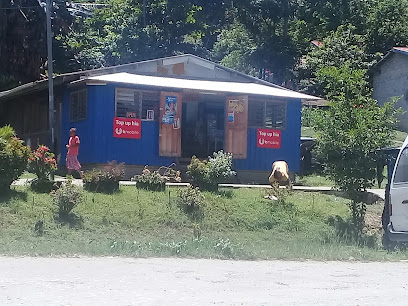
Unmissable attractions to see
Solomon Scouts & Coastwatchers Monument
Explore the Solomon Scouts & Coastwatchers Monument in Honiara, a tribute to bravery and a glimpse into the rich history of the Solomon Islands.
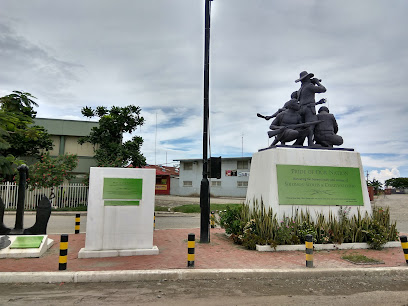
Vilu Military Museum
Discover the rich military history of the Solomon Islands at the Vilu Military Museum - a captivating journey through time and culture.
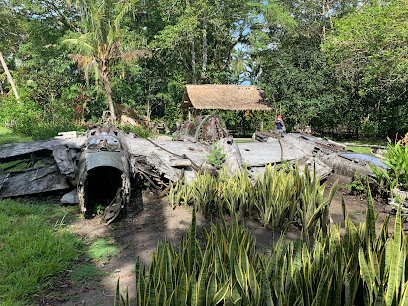
Solomon Islands National Museum
Explore the Solomon Islands National Museum for a captivating journey through the rich history and culture of this stunning Pacific paradise.
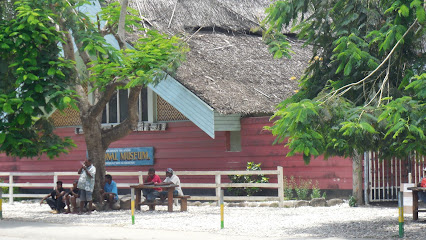
Solomon Peace Memorial Park (Japanese war memorial)
Explore Solomon Peace Memorial Park in Honiara, a serene historical landmark honoring the sacrifices of World War II and promoting peace.
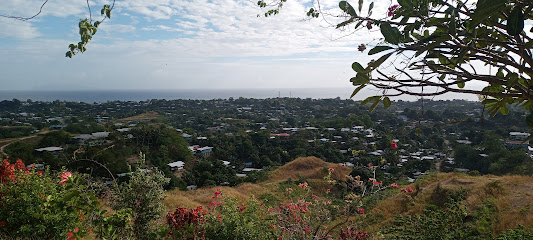
Graceland Nature Park
Experience the beauty and tranquility of Graceland Nature Park, a perfect escape for nature lovers and adventure seekers alike.
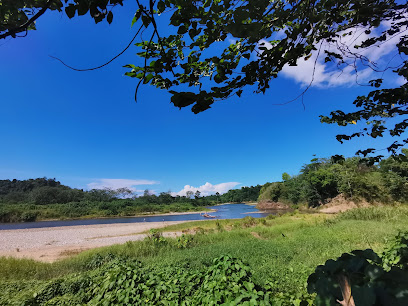
Honiara Botanical Gardens
Discover the breathtaking beauty of Honiara Botanical Gardens, a serene sanctuary filled with vibrant flora and inviting pathways in the heart of Solomon Islands.
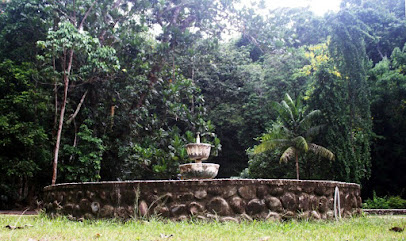
Piaru Beach
Discover the tranquil beauty of Piaru Beach in Ruaniu, a serene paradise perfect for relaxation and adventure in the Solomon Islands.
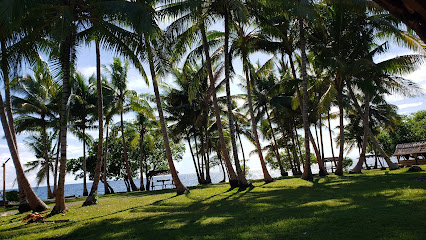
Rove Children's Park
Explore the vibrant Rove Children's Park in Honiara, a perfect family-friendly destination offering play areas, picnic spots, and serene walking paths.
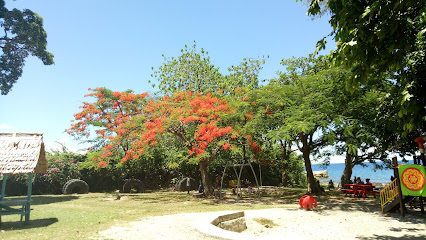
Betikama College War Museum
Explore the history of the Solomon Islands at Betikama College War Museum, a must-visit for history lovers and cultural enthusiasts.
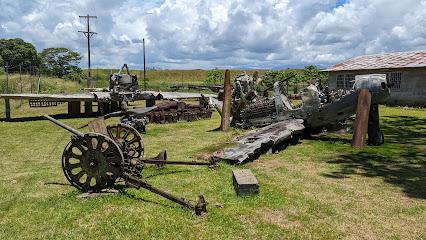
Chaha Cascades
Explore the breathtaking beauty of Chaha Cascades, a stunning natural attraction in Tanaghai, perfect for nature lovers and adventure seekers alike.
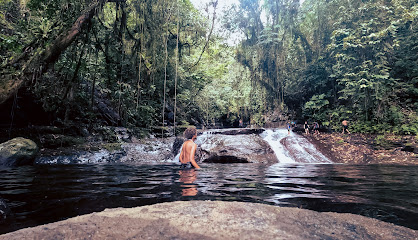
Tetere Beach
Experience the serene beauty of Tetere Beach, a tranquil escape in Ghorambau, Solomon Islands, perfect for relaxation and marine exploration.
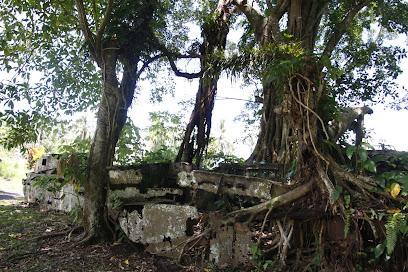
Blue Beach WWII Memorial
Discover the poignant history and breathtaking views at the Blue Beach WWII Memorial in Tulagi, a tribute to courage and sacrifice.
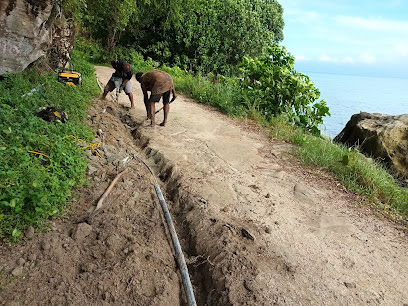
Raintree Beach
Discover the serene beauty of Raintree Beach in Ruaniu, a perfect getaway for relaxation and natural exploration in the Solomon Islands.
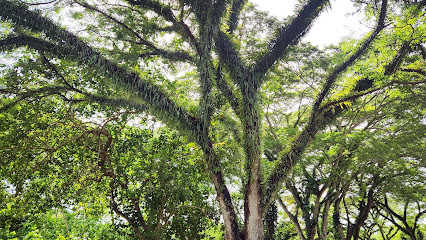
Roman Dolphin Point
Discover the enchanting Roman Dolphin Point in Reko, a breathtaking tourist attraction where playful dolphins and stunning ocean views await.

jacobs ladder
Explore the stunning Jacob's Ladder in Honiara, a hiking paradise with breathtaking views and diverse wildlife waiting to be discovered.

Essential places to dine
Tenkai Sushi Cafe
Experience authentic Japanese flavors at Tenkai Sushi Cafe in Honiara – your go-to destination for exquisite sushi and sashimi.
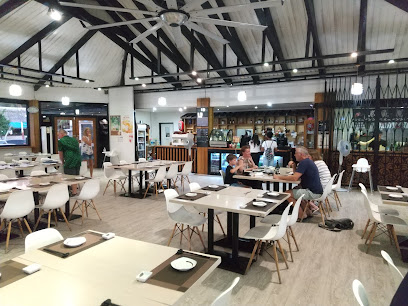
Saigon Sunrise - Honiara Bakery & Vietnamese Restaurant
Experience authentic Vietnamese cuisine at Saigon Sunrise in Honiara - where every bite transports you to Vietnam's culinary heart.
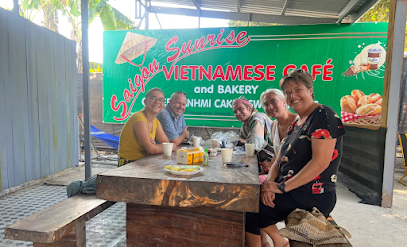
Mr Grill Fast Food & Noodle Haus
Discover delightful flavors at Mr Grill Fast Food & Noodle Haus - where fast food meets local cuisine in Honiara.
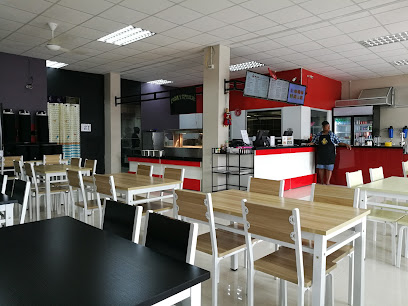
Mambo Juice!
Discover the vibrant flavors at Mambo Juice - your go-to cafe for fresh juices, coffee, and delightful sandwiches in Honiara.
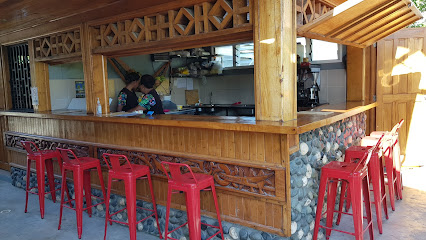
Monarch
Experience authentic Solomon Islands cuisine at Monarch Grill in Honiara - where every bite tells a story.
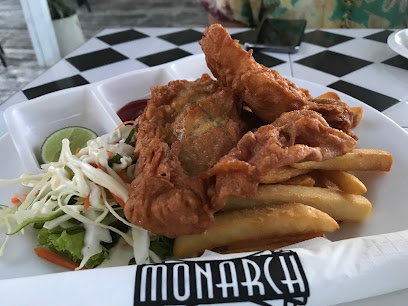
Haydn's Steakhouse
Experience culinary excellence at Haydn's Steakhouse in Honiara—where succulent steaks meet vibrant local flavors.
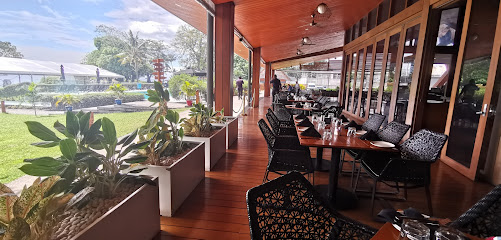
Injoy Restaurant
Experience authentic Chinese flavors at Injoy Restaurant in Honiara - where culinary traditions meet modern hospitality.
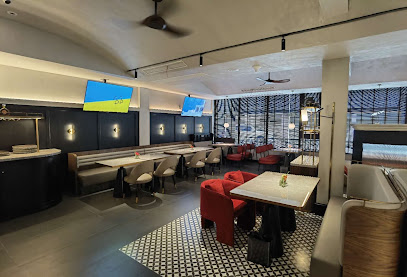
Baker Burger
Discover an extraordinary burger experience at Baker Burger in Honiara – where local flavors meet culinary creativity.
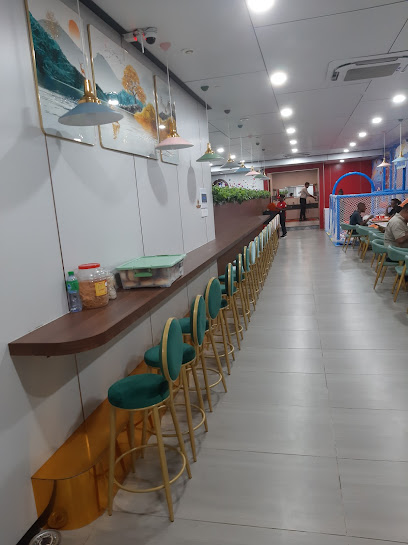
Vanita Motel & Restaurant
Experience comfort and local flavors at Vanita Motel & Restaurant in Tulagi - your perfect island getaway!
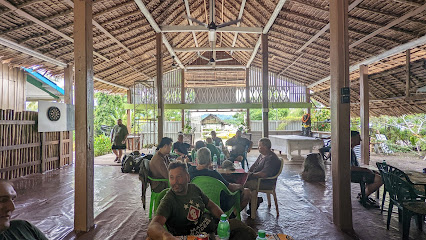
Cowboy's Grill
Experience authentic local cuisine at Cowboy's Grill in Honiara - where every meal is a celebration of flavors.
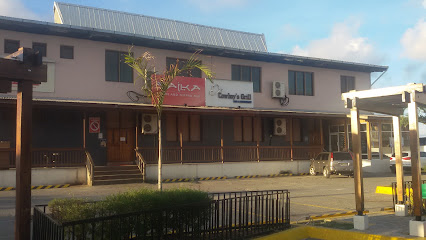
Taste & Traditions
Discover authentic Solomon Islands cuisine at Taste & Traditions in Honiara – where every dish tells a story.
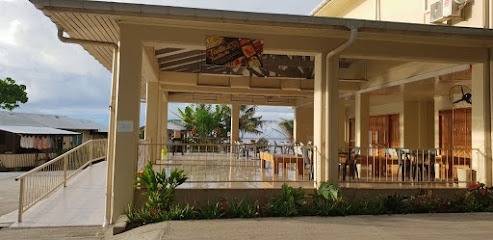
Local Fusion Cafe & Bar
Experience the vibrant flavors of Solomon Islands cuisine blended with global influences at Local Fusion Cafe & Bar in Honiara.
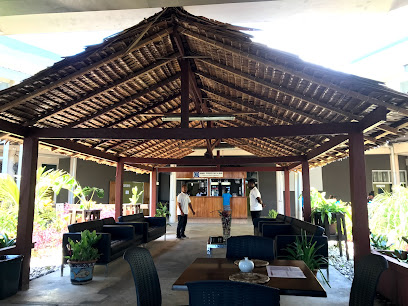
River House
Experience authentic Solomon Islands cuisine at River House in Lungga - where fresh flavors meet warm hospitality.
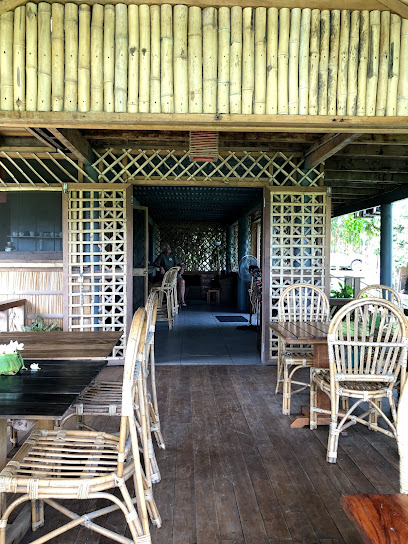
Dynasty
Experience fresh seafood and authentic island flavors at Dynasty, Honiara's premier destination for seafood lovers.
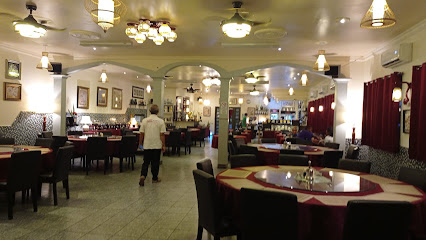
Club Havanah
Experience authentic French cuisine in the heart of Honiara at Club Havanah, where culinary artistry meets island charm.
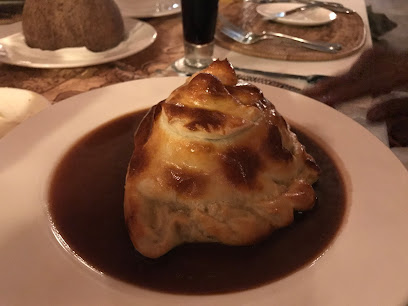
Markets, malls and hidden boutiques
Bulk Shop
Explore Bulk Shop in Honiara for a diverse range of grocery items, from fresh produce to international snacks, all in one convenient location.
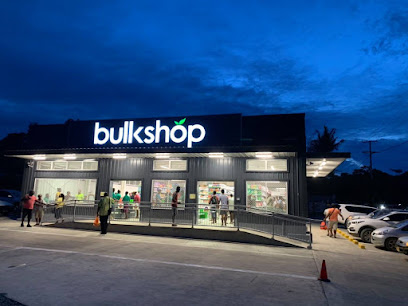
Bulk Shop - KGVI Branch
Explore the Bulk Shop - KGVI Branch in Honiara for a delightful selection of local and imported groceries that cater to every traveler's needs.

Pacific Clothing
Explore unique fashion and local style at Pacific Clothing in Honiara's vibrant Chinatown, where tradition meets contemporary flair.
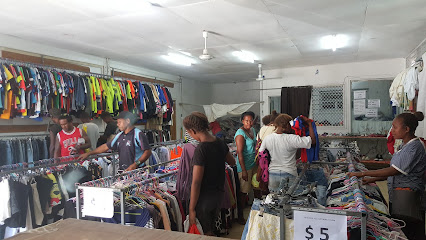
Jay Mini Mart
Experience the local culture at Jay Mini Mart in Tulagi, where unique flavors and friendly service await every visitor.
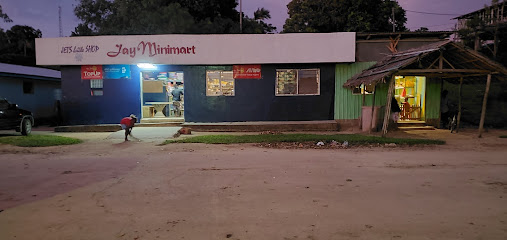
Latif General Store
Explore local flavors and daily life at Latif General Store in Honiara, a charming grocery store filled with fresh produce and unique products.

Baegu Store
Explore Honiara's Baegu Store for an authentic shopping experience filled with local products, souvenirs, and unique treasures of the Solomon Islands.

H & D SHOP 2
Explore H & D Shop 2 in Honiara for unique local products, souvenirs, and an authentic taste of Solomon Islands culture.
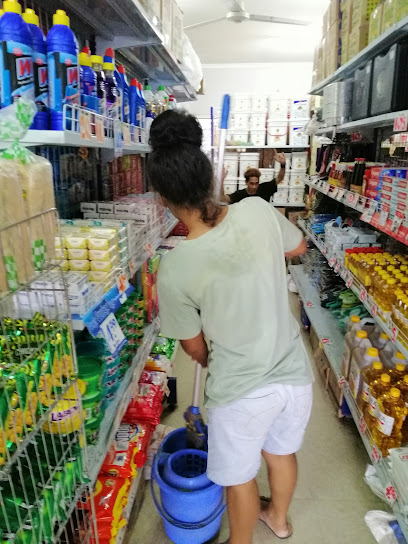
Universal Traders LTD
Discover unique furniture accessories at Universal Traders LTD in Honiara, showcasing the rich craftsmanship of the Solomon Islands.
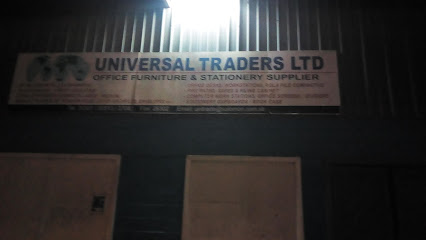
Tropical Shop
Explore unique fashion and local styles at Tropical Shop in Lungga, where vibrant island culture meets affordable clothing.

Mamun Store
Discover the vibrant culture of the Solomon Islands at Mamun Store, a unique shopping destination in Nguvia offering local crafts and products.
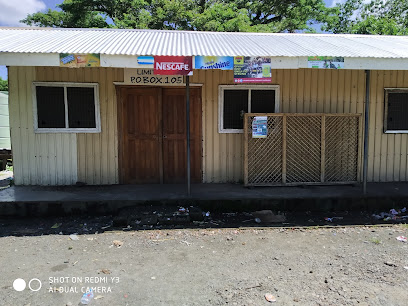
Honey's Op Shop
Explore Honey's Op Shop in Honiara for unique clothing and local fashion treasures that showcase the vibrant culture of the Solomon Islands.

dj's souvenir, merchandise, gift shop
Discover the essence of the Solomon Islands at DJ's Souvenir & Gift Shop - your go-to destination for unique gifts and local crafts.
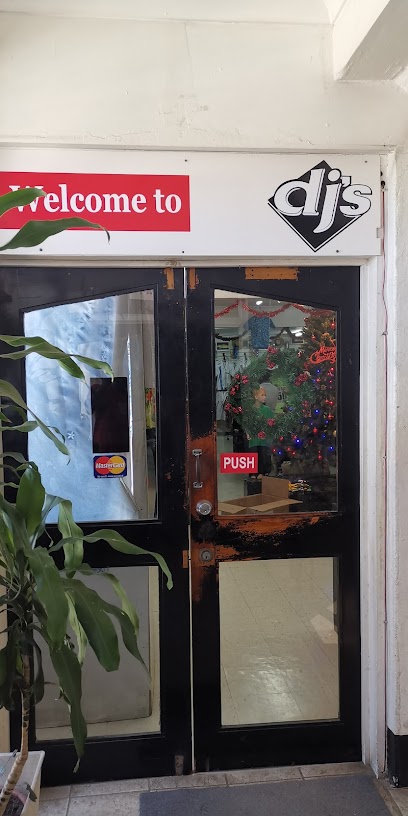
Talon Shopping
Explore Talon Shopping in Honiara for unique local goods and an authentic taste of Solomon Islands culture.

Nautilus Books&Gifts
Discover unique souvenirs and local crafts at Nautilus Books & Gifts in Honiara, the heart of the Solomon Islands.

Tulagi Main market
Experience the lively atmosphere of Tulagi Main Market, where local flavors and vibrant culture converge on Tulagi Island.

Essential bars & hidden hideouts
Point Cruz Yacht Club
Experience the vibrant spirit of Honiara at Point Cruz Yacht Club, where stunning views, great drinks, and lively atmosphere come together.
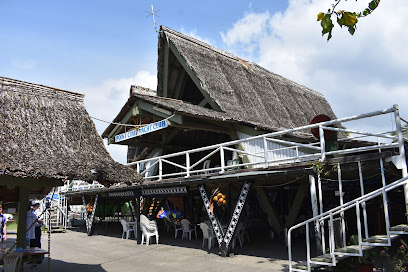
Monarch
Experience the best of local cuisine at Monarch Grill in Honiara, where flavorful dishes meet a warm and inviting atmosphere.
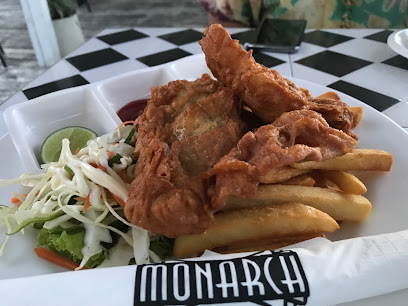
Vanita Motel & Restaurant
Discover the perfect blend of local flavors and cozy accommodations at Vanita Motel & Restaurant in Tulagi, a true gem for travelers.
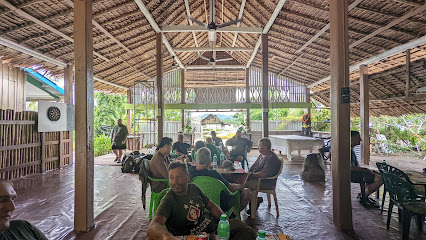
Local Fusion Cafe & Bar
Experience the vibrant taste of Honiara at Local Fusion Cafe & Bar, where local ingredients meet global culinary traditions.
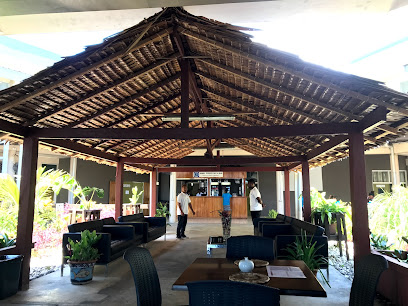
The Food Alley
Experience a culinary adventure at The Food Alley in Honiara, where local flavors meet international cuisine in a vibrant atmosphere.
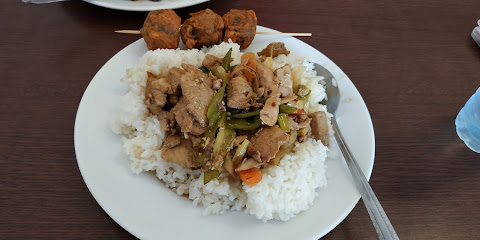
Fun Café
Discover the flavors of Honiara at Fun Café, a cozy restaurant blending local delicacies with international cuisine in a vibrant atmosphere.
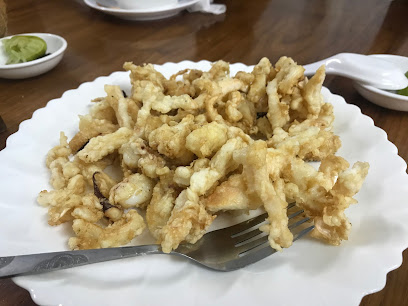
Chillers Bar
Discover the vibrant atmosphere and refreshing drinks at Chillers Bar, Honiara's favorite spot for relaxation and socializing.
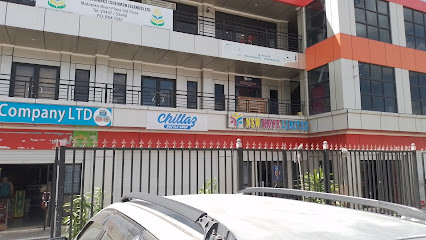
Sunset View Pub and Recreational
Experience breathtaking sunsets at Sunset View Pub and Recreational in Mbelaha, a serene bar offering refreshing drinks and a welcoming atmosphere.
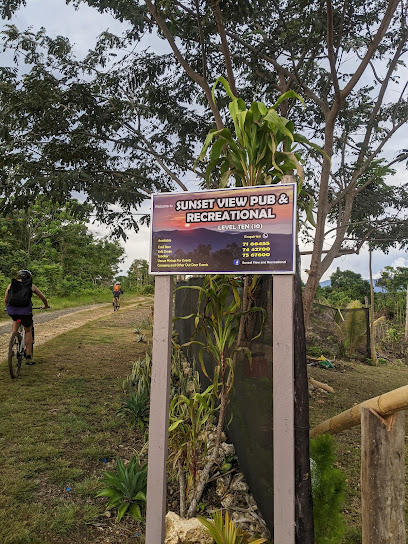
Canoe Bar
Experience the vibrant atmosphere of Canoe Bar in Honiara, where tropical cocktails meet stunning views and local culture.
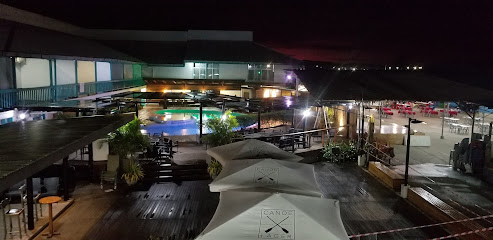
Tariu Kava bar
Discover the cultural heart of Honiara at Tariu Kava Bar, where authentic kava and local camaraderie await every visitor.
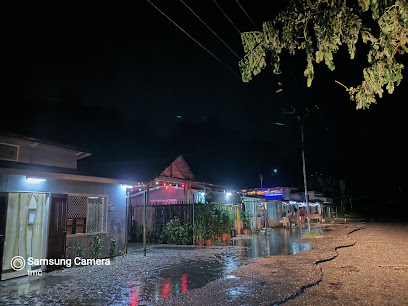
Lowprice enterprise ltd
Experience the relaxed charm of Honiara at Lowprice Enterprise Ltd, a perfect bar for enjoying local drinks and mingling.

Eyes Pub
Discover the laid-back charm of Eyes Pub, a local bar in Honiara, where drinks and friendly vibes await every traveler.
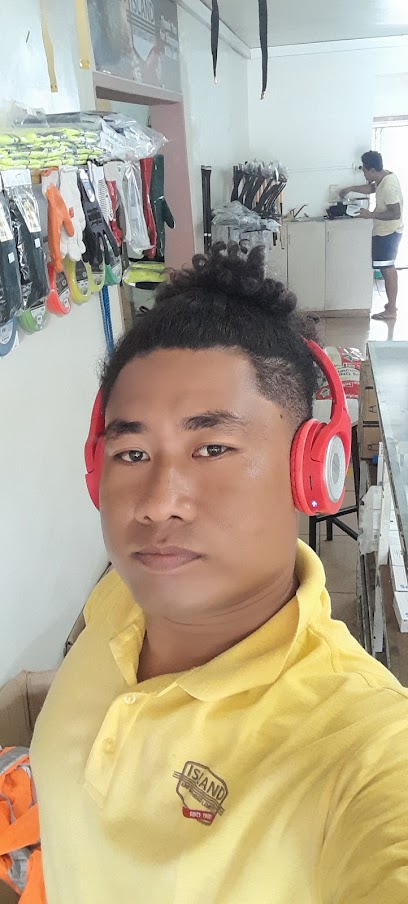
The Pagoda
Discover the local charm at The Pagoda, a cozy bar in Lungga, perfect for enjoying local drinks and a friendly atmosphere.
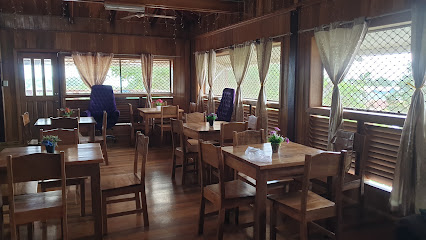
Tulagi Island Lodge
Experience the serene beauty and rich history of Tulagi Island Lodge, your perfect getaway in the heart of the Solomon Islands.
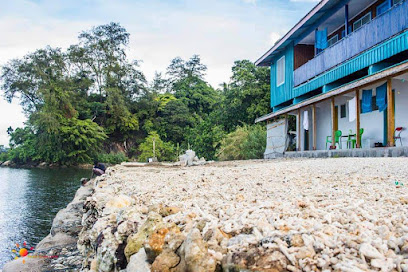
Local Phrases
-
- HelloAló
[ah-LOH] - GoodbyeTata
[TAH-tah] - YesOo
[OO] - NoKare
[KAH-reh] - Please/You're welcomeTangio
[TAHN-gee-oh] - Thank youTangio tumas
[TAHN-gee-oh TOO-mahs] - Excuse me/SorrySori
[SOH-ree] - How are you?Oli ia?
[OH-lee EE-ah] - Fine. And you?Heva. Oli ia?
[HEH-vah. OH-lee EE-ah] - Do you speak English?Oli save toktok long Inglish?
[OH-lee SAH-veh TOHK-tohk lawng ING-lish] - I don't understandMi no save hem
[mee noh SAH-veh hehm]
- HelloAló
-
- I'd like to see the menu, pleaseMi wantem lukim menu plis
[mee WAHN-tehm LOO-keem MEH-noo plees] - I don't eat meatMi no save kaikai mit
[mee noh SAH-veh KAI-kai meet] - Cheers!Wanem olsem!
[WAH-nehm OHL-sehm] - I would like to pay, pleaseMi wantem peim, plis
[mee WAHN-tehm peh-eem, plees]
- I'd like to see the menu, pleaseMi wantem lukim menu plis
-
- Help!Helpim mi!
[HEHL-peem mee!] - Go away!Go lusim!
[goh LOO-seem!] - Call the Police!Kolem Polis!
[KOH-lehm POH-lees!] - Call a doctor!Kolem dokta!
[KOH-lehm DOHK-tah!] - I'm lostMi lesim
[mee LEH-seem] - I'm illMi sik
[mee seek]
- Help!Helpim mi!
-
- I'd like to buy...Mi wantem baem...
[mee WAHN-tehm BAH-ehm...] - I'm just lookingMi jes lukim
[mee jehs LOO-keem] - How much is it?Hao moa?
[HAH-oh moh-ah] - That's too expensiveHem i moa strong tumas
[hehm ee moh-ah STRAWNG TOO-mahs] - Can you lower the price?Yu save pulum daun pris?
[yoo SAH-veh POO-luhm down prees?]
- I'd like to buy...Mi wantem baem...
-
- What time is it?Hao tam?
[HAH-oh tahm?] - It's one o'clockEm i wan
[ehm ee wahn] - Half past (10)Haf pasten
[hahf PAH-stehn] - MorningMornim
[MOHR-neem] - AfternoonAftanun
[AHF-tah-noon] - EveningIvinin
[EE-vee-neen] - YesterdayDei ya
[deh YAH] - TodayTudei
[TOO-deh] - TomorrowTomoro
[toh-MOH-roh] - 1Wan
[wahn] - 2Tu
[too] - 3Tri
[tree] - 4Fo
[foh] - 5Faiv
[fahyv] - 6Siks
[sihks] - 7Seven
[SEH-vehn] - 8Eit
[ayt] - 9Nain
[nayn] - 10Ten
[tehn]
- What time is it?Hao tam?
-
- Where's a/the...?Wea em i...?
[WEH-ah ehm ee...?] - What's the address?Hao long nom?
[HAH-oh lawng nohm?] - Can you show me (on the map)?Yu save soim mi (long map)?
[yoo SAH-veh SAW-eem mee (lawng mahp)?] - When's the next (bus)?Hao long bus ia?
[HAH-oh lawng boos EE-ah?] - A ticket (to ....)Wan tiket (long ....)
[WAHN tee-KEHT (lawng ....)]
- Where's a/the...?Wea em i...?
History of Tulagi
-
Tulagi, the former capital of the Solomon Islands, was established as a British protectorate in 1893. The British selected Tulagi, a small island in the Nggela Islands, due to its strategic location and natural harbor. The town quickly developed into a bustling colonial administrative center, characterized by its European-style buildings and infrastructure.
-
During World War II, Tulagi became a focal point in the Pacific Theater. In May 1942, the Japanese forces occupied Tulagi, recognizing its strategic importance. However, this occupation was short-lived. In August 1942, Allied forces launched the Guadalcanal Campaign and Tulagi was fiercely contested. The Battle of Tulagi, part of this campaign, was pivotal in the Allied efforts to regain control of the Pacific. The island's landscape still bears remnants of this intense conflict, including war relics and sunken ships.
-
Following World War II, Tulagi's importance dwindled. The capital was relocated to Honiara on Guadalcanal in 1952, which was better suited for expansion and development. Tulagi, once the administrative heart, became a quieter town, retaining much of its colonial charm and historical significance.
-
Today, Tulagi is a blend of historical landmarks and vibrant local culture. The indigenous Melanesian communities continue to thrive, maintaining their traditional customs and practices. Visitors can experience local life through cultural performances, traditional food, and crafts. The island's small population is welcoming, often sharing stories of their ancestors and the island's storied past.
-
Tulagi has embraced its rich history as a draw for tourists. Key sites include the remains of colonial buildings, war memorials, and relics from World War II. The island's natural beauty, with its pristine waters and coral reefs, also attracts divers and history enthusiasts alike. Guided tours provide insights into both the colonial and wartime history, making Tulagi a unique destination for those interested in the past.
Tulagi Essentials
-
Tulagi is located in the Solomon Islands, and the nearest international airport is Honiara International Airport on Guadalcanal Island. From Honiara, you can take a domestic flight to Henderson Field and then a boat transfer to Tulagi. Alternatively, you can take a direct boat from Honiara to Tulagi, which takes approximately 1-2 hours depending on the sea conditions.
-
Tulagi is a small island, and most attractions are within walking distance. For longer trips, local boats and taxis are available. Renting a small boat can also be an option for exploring the surrounding areas and nearby islands. Be sure to negotiate fares beforehand as there are no metered taxis.
-
The official currency in Solomon Islands is the Solomon Islands Dollar (SBD). Credit cards are not widely accepted in Tulagi, so it is advisable to carry sufficient cash. ATMs are scarce, and it's best to withdraw enough cash in Honiara before traveling to Tulagi.
-
Tulagi is generally a safe destination for tourists. However, it is always advisable to take standard precautions. Avoid walking alone at night in unfamiliar areas, and keep an eye on your belongings in crowded places. There are no specific high-crime areas targeting tourists, but always stay vigilant.
-
In case of emergency, dial 999 for immediate assistance. The local police station and medical facilities are available on the island. It is recommended to have travel insurance that covers medical emergencies. For minor health issues, there are pharmacies where you can purchase over-the-counter medications.
-
Fashion: Do dress modestly, especially when visiting local villages or religious sites. Avoid wearing revealing clothing. Religion: Do respect local customs and traditions. Always ask for permission before taking photos of people or sacred sites. Public Transport: Do be respectful and courteous to locals. Don't expect strict schedules; island time is more fluid. Greetings: Do greet people with a friendly 'hello' or 'good morning.' Handshakes are less common but appreciated. Eating & Drinking: Do try local dishes and accept food offerings graciously. Don't refuse hospitality, as it is considered impolite.
-
To experience Tulagi like a local, visit the local markets where you can buy fresh produce and traditional Solomon Islands goods. Engage with locals, as they are often friendly and willing to share stories about the island's history and culture. Don't miss visiting historical sites related to World War II, as Tulagi was a significant battleground. For a unique experience, explore the underwater shipwrecks and coral reefs, which are popular among divers.
Trending Landmark in Tulagi
-
MS World Discoverer
-
Heritage Park Hotel
-
Coral Sea Resort & Casino
-
Honiara Central Market
-
Guadalcanal Memorial
-
Solomon Scouts & Coastwatchers Monument
-
Vilu Military Museum
-
Solomon Islands National Museum
-
Tulagi Island
-
Solomon Islands Ports Authority
-
Vanita Motel & Restaurant
-
Bilikiki Cruises
-
Maravagi beach resort
-
Taste & Traditions
-
Tulagi Dive
Nearby Cities to Tulagi
-
Things To Do in Honiara
-
Things To Do in Auki
-
Things To Do in Yandina
-
Things To Do in Gizo
-
Things To Do in Taro Island
-
Things To Do in Arawa
-
Things To Do in Lata
-
Things To Do in Sola
-
Things To Do in Kokopo
-
Things To Do in Rabaul
-
Things To Do in Luganville
-
Things To Do in Alotau
-
Things To Do in Norsup
-
Things To Do in Lakatoro
-
Things To Do in Lamap









